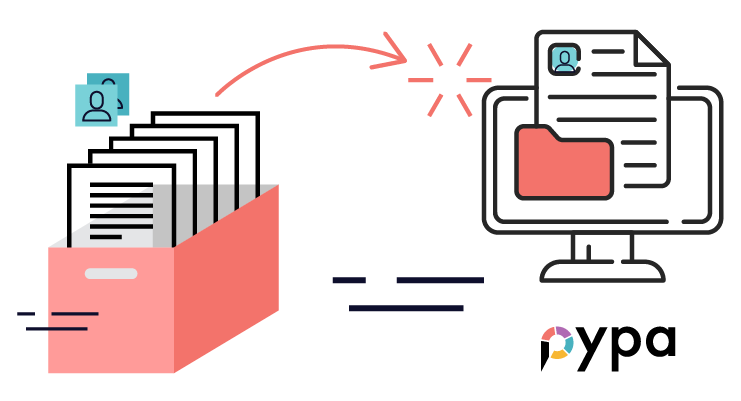
As an employer you should always be working to prevent employee stress. After all, 37% of US employees report being affected by workplace stress. Employee stress decreases productivity and has negative consequences for your employees and you. Fortunately, the signs of employee stress and burnout are easy to spot and there are great ways to deal with the problem. From offering great benefits to focusing on wellbeing to providing career development, you can implement these 14 simple tips for preventing employee stress:
Why is Preventing Employee Stress Important?
How Do You Tell If Your Employees Are Stressed?
14 Ways to Minimize Employee Stress at Work:
Hopefully, you want to prevent employee stress as part of being a good employer. However, if you need extra motivation, there are plenty of ways that employee stress affects your business:
Employee stress is at an all time high right now due to Covid-19 and its effects on work, making it especially important to look at how you can minimize employee stress in your workplace. Firstly, you need to know…
Employee stress manifests differently for every employee, but here are some signs you will often notice (especially when the employee reaches the point of burnout):
Now you know how to recognize employee stress, let’s look at how to decrease it:
There are many ways of preventing employee stress, but we’ll look at 14 of the best ways to deal with employee stress:
Taking regular breaks is a great way to prevent stress, so it’s important to encourage employees to take all of their scheduled breaks. Breaks are also important between work days, which is why you should avoid long hours and roster employees so that they have plenty of time to rest.
Open communication is important for a healthy workplace; it’s also key for healthy employees. But how do you achieve open communication? Communicate changes well in advance to allow employees time to adjust and make yourself approachable so that employees feel they can ask you questions.
However, perhaps the biggest communication game-changer is HR software which makes it easy to communicate with your employees. For example, Pypa HR provides a platform for employees to message each other and you, for you to post notices, and a moderation section where employees can voice their concerns or complaints.
Flexibility is one of the things that employees value in the workplace. Conversely, lack of flexibility is a major stressor. This means that if you want happy employees you need to offer flexibility. This may include being able to work from home some or all of the time, the option to go part time, and flexible hours to manage family and personal commitments. Remember that employees find managing their own hours less stressful and that you can still track their hours when they’re working from home using an HRIS like Pypa HR.
Stress is often caused by overwork. How can you avoid overworking your employees? Apart from encouraging use of breaks and avoiding long hours, you can set very clear goals and expectations for your employees so that they know how much work they should be doing and what type of work. This should start with the job description: provide employees with a clear, detailed job description so that they know exactly what their responsibilities are.
Then, there are goals—goals, with milestones, are useful to show employees what they should be doing and by when and for preventing overwork. Goals can be entered into an HRIS, where employees (and you) can check their progress. Employees like to be able to dictate their own work, so, if you have an HRIS, consider using the teams function to allow employees to work as autonomous teams.
Make sure that employees aren’t having to do work beyond their skill level. (If you have employees doing work that is above their skill level, it might be time for a new hire).
Offering benefits is crucial to reducing employee stress as it helps employees take care of themselves. Benefits should include healthcare, dental, vision and mental health. Paid time off is another essential benefit as vacation time allows employees to rest and recharge which is very important for their health.
There are many ways in which you can prioritize your employees’ wellbeing that do a great job at reducing stress. These include:
As well as offering benefits and perks, you as an employer can offer events and training to your employees to help them deal with stress. These events can be directly related to conquering stress, like anti-stress seminars, or activities like yoga and meditation. All of these events can be easily scheduled with HR software like Pypa HR.
Stress is best dealt with before it becomes burnout. You can use the list of common symptoms of stress above to help you, as well as any feedback you might get from your employees. Also useful is looking at your HR metrics and reports (which can be easily generated with a HRIS) to identify issues such as overwork and unrealistic expectations before they become problems.
Many employees find meetings stressful, either because meetings take time away from their actual work or because the employee doesn’t have the social skills to deal with constant meetings. (Remember Zoom fatigue?—It can occur in real life too).
Having a limited number of short and to the point meetings, such as stand-up meetings, will make sure your employees feel like their time is being valued.
Most employees enjoy social office activities like after-work drinks, end of year parties, and birthday celebrations. These events help minimize stress: they foster a sense of camaraderie in the office and help employees make friends (and feel less isolated). However, social events should be optional as employees with social anxiety may just find these events extra stress.
Your employees, in order to impress the boss, copy what you do, or, at least, look to you for inspiration. This means it’s vital to practice what you preach. If you are a paragon of good office behaviour, if you take breaks and vacations and make obvious efforts to offset your own workplace stress, then your employees will know that it’s okay to take care of themselves.
Pay is one of your employees’ biggest concerns. It’s very important that you offer a competitive rate of pay (it’s easy to find out pay rates in your industry), as well as benefits, bonuses and pay-rises. You can have all the well-being office perks in the world, but your employees will still be stressed if they have to worry about money.
Jobs are more precarious than they were in the past, with employees no longer staying at the same company or even in the same industry for their entire working life. This creates a sense of insecurity and stress for employees who want to make sure their career is on the right track. You can reassure your employees by offering clear paths for advancement, career development, and training.
Employees need to be respected and recognized as good at their jobs, to feel valued. You can do this several ways—offer rewards for doing well at work (including promotions and bonuses), recognize and reward an employee for their contributions to the company, and lastly address any issues, such as harassment (which is easy with good HR software like Pypa HR) so that all your employees can feel safe at work.
Preventing employee stress isn’t impossible, but it is the employer’s responsibility. Learn to recognize the signs of employee stress and how to combat it (whether it’s by bringing pets to work or improving workplace communication), to prevent issues with job retentions and lawsuits. Taking care of employee stress will improve your company’s culture and allow your business and your employees to thrive.
If you are looking for an online HR software to automate your HR processes, Pypa HR has you covered! Pypa can provide employees with tools to enter and manage their own information, hours, and take training programs, leaving your HR department with more time to do the tasks that matter!

A good recruitment process is key to hiring top talent. It may seem quite complicated to create a...

Employer branding can help improve your hiring, your employee retention and your sales. Therefore,...

Employee records are something that all businesses, whether big or small, need to keep, sometimes...